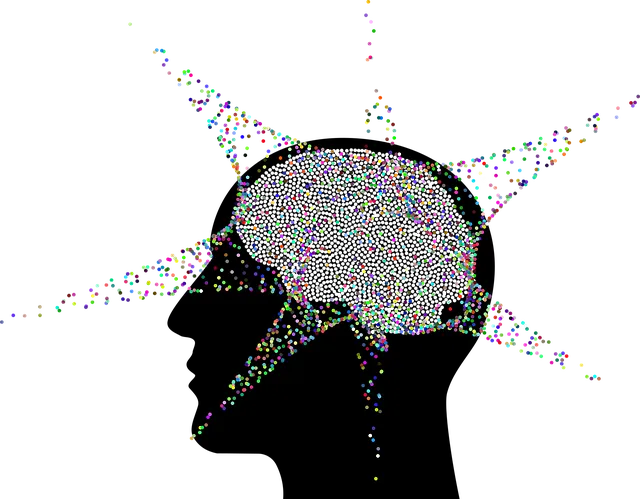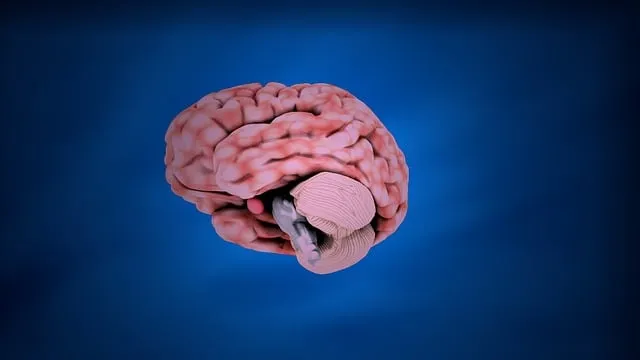The Lafayette Kaiser Permanente mental health center, under its innovative owner-operated model, is tackling the challenges of mental illness diagnosis by advocating for improved training and education. They emphasize emotional regulation techniques, evidence-based practices, and comprehensive Mental Health Education Programs to enhance accuracy. By integrating Mind Over Matter principles, mindfulness meditation, social skills training, and cultural sensitivity, the center strives to improve patient outcomes, especially in busy settings, ensuring diverse populations receive respectful, personalized care.
Mental illness diagnosis accuracy is a critical aspect of healthcare, yet challenges persist. This article explores current obstacles, highlighting common misdiagnoses and their detrimental effects. We delve into the innovative strategies employed by the Lafayette Kaiser Permanente Mental Health Center, led by its dedicated staff, to enhance diagnostic precision. Additionally, we discuss evidence-based practices, such as advanced assessment tools and professional training, that contribute to improved accuracy. Community involvement is also crucial for mental health awareness, with potential collaborations shaping a brighter future for accurate diagnosis.
- Current Challenges in Mental Illness Diagnosis
- – Discussion on common misdiagnoses and their impact
- – Factors contributing to diagnosis inaccuracy
- Lafayette Kaiser Permanente Mental Health Center's Approach
Current Challenges in Mental Illness Diagnosis

The current landscape of mental illness diagnosis is fraught with challenges that hinder accurate assessments and effective treatment plans. One prominent issue is the complexity of symptoms, which often overlap across various disorders, making differential diagnosis a daunting task for healthcare professionals, especially at a bustling center like the Lafayette Kaiser Permanente mental health center by owner. This complexity is further exacerbated by the subjective nature of self-reported symptoms, which can vary widely between individuals and cultural contexts.
Additionally, the lack of standardized assessment tools tailored to diverse populations creates inconsistencies in diagnosis across different regions and healthcare providers. This variability is a significant concern, especially when considering the impact on treatment outcomes and patient care. To address these challenges, Mental Health Policy Analysis and Advocacy groups are pushing for improved training programs that focus on Emotional Regulation techniques and encourage evidence-based practices. By promoting Emotional Well-being Promotion Techniques, these efforts aim to enhance diagnostic accuracy and ultimately improve mental health services for all individuals seeking support at centers like Lafayette Kaiser Permanente.
– Discussion on common misdiagnoses and their impact

Misdiagnosis in mental health can have profound and detrimental effects on a patient’s life. Common misidentifications often occur due to the complex nature of symptoms and the vast array of possible conditions. For instance, anxiety disorders are frequently mistaken for depression or even bipolar disorder, leading to inappropriate treatment strategies. Similarly, personality disorders might be overlooked, with patients initially diagnosed with more ‘mainstream’ conditions like major depressive disorder. These errors in diagnosis can result in delayed access to the right support and treatments tailored to the patient’s unique needs, thus hindering their path to recovery.
The Lafayette Kaiser Permanente mental health center by owner recognizes these challenges and is at the forefront of initiatives aimed at improving diagnostic accuracy. Through the implementation of comprehensive Mental Health Education Programs Design, they empower both patients and healthcare providers. These programs focus on raising awareness about diverse mental health conditions, promoting early recognition of symptoms, and fostering an environment where discussions around emotional well-being are openly encouraged. Additionally, integrating Mind Over Matter Principles into treatment plans offers a holistic approach, emphasizing the mind’s influence on overall health and encouraging patients to take an active role in their recovery, thereby enhancing diagnostic precision and patient outcomes.
– Factors contributing to diagnosis inaccuracy

Diagnosis inaccuracy in mental health often arises from a complex interplay of factors. One significant contributor is the subjective nature of many symptoms, which can vary greatly among individuals and be influenced by cultural contexts—a challenge that even seasoned professionals at Lafayette Kaiser Permanente Mental Health Center by owner encounter. This variability makes it crucial for practitioners to rely not just on clinical guidelines but also on their own emotional intelligence when interpreting patient presentations.
Another factor is the pressure to make quick decisions in high-stress environments, as seen in emergency settings or acute care facilities. This rush can lead to oversights or misjudgments, especially without comprehensive Risk Management Planning for Mental Health Professionals. Moreover, a lack of access to up-to-date resources and training, such as Crisis Intervention Guidance, can hinder accurate diagnosis, making it imperative for healthcare providers to stay informed and engaged in continuous professional development.
Lafayette Kaiser Permanente Mental Health Center's Approach

The Lafayette Kaiser Permanente Mental Health Center stands as a beacon of innovation in mental healthcare, championing an owner-operated approach to significantly enhance diagnosis accuracy and patient outcomes. Their strategy revolves around integrating cutting-edge assessment tools with evidence-based practices tailored to individual needs. By prioritizing Cultural Sensitivity in Mental Healthcare Practice, the center ensures that diverse populations receive treatment that respects their unique backgrounds and experiences.
This holistic approach includes incorporating Mindfulness Meditation techniques into therapeutic routines, fostering a sense of calm and self-awareness among patients. Additionally, Social Skills Training is offered as a complementary practice, empowering individuals to navigate interpersonal interactions with confidence and ease. Such comprehensive strategies not only improve diagnosis accuracy but also significantly enhance the overall quality of mental healthcare services provided by Lafayette Kaiser Permanente.
The journey towards accurate mental illness diagnoses is continually evolving, and the Lafayette Kaiser Permanente Mental Health Center stands as a beacon of hope. By employing innovative strategies and leveraging expertise from its dedicated professionals, this leading mental health center strives to enhance diagnosis accuracy. Through addressing common misdiagnoses and understanding the complex interplay of factors that contribute to inaccuracies, they aim to provide personalized care tailored to each individual’s unique needs. The Lafayette Kaiser Permanente mental health center by owner is committed to revolutionizing diagnosis practices, ensuring that those seeking support receive the most effective and precise treatments available.






